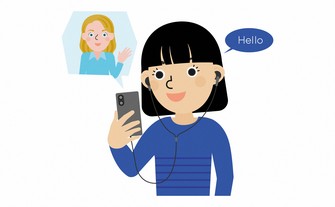
(Getty Images)
TOKYO — More people in Japan are studying languages with ChatGPT, and among the younger generation, this study method has surpassed face-to-face lessons, a survey by a leading language learning app maker has found.
The survey was conducted online in early November by Duolingo, targeting 4,700 native Japanese speakers in Japan aged 15 to 59.
When those currently learning a language were asked how they do so, “apps” remained the top choice as in the previous year at 58.3%, followed by “video services” such as YouTube at 37.0%, “textbooks” at 35.6%, “online lessons” at 15.6% and “face-to-face lessons” at 13.8%.
The largest percentage increase was seen in ChatGPT, picked by 10.9% of respondents, which was introduced in 2022. The figure increased by about 1.8 times from the previous year. For those in their 20s and 30s, ChatGPT use exceeded in-person lessons and radio.
Asked if they have ever used interactive AI chatbots for language learning, 27.8% of 15- to 19-year-olds and 15.0% of those in their 20s said they have, indicating such technology as an emerging learning option for the next generation.
Duolingo analyzed that “time efficiency awareness is spreading, and demand is rising for learning that can be done easily in one’s own spare time.”
By language, English was the most popular language among both “those who are learning” and “those who are interested in learning a language in the future.”
Korean came in second place, with its popularity among younger respondents standing out. Among those currently learning a language, 27.9% of those aged 15-19 and 31.1% of those in their 20s were learning Korean. Asked which language they would like to learn in the future, 44.8% of 15- to 19-year-olds and 35.3% of those in their 20s chose Korean.
While the most common reason for learning English was the desire for career advancement, the top reason for Korean was “to understand the language as spoken by my favorite artists and celebrities.” Amid the Korean culture boom, the results indicate that fandom activities for K-pop idols and South Korean celebrities have led to a desire to learn the language.
(Japanese original by Atsuko Ota, Digital News Group)


AloJapan.com